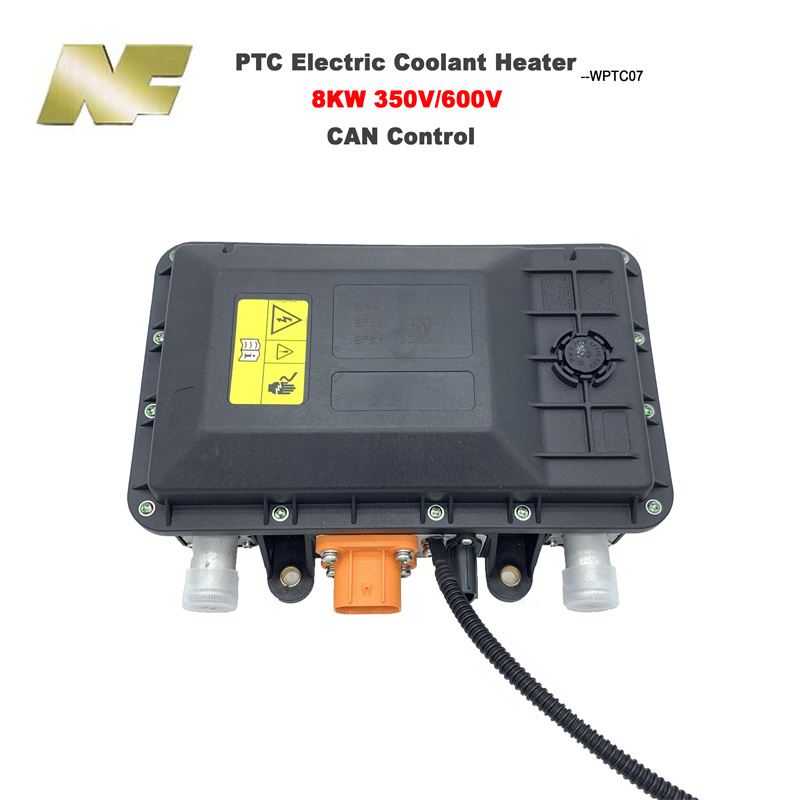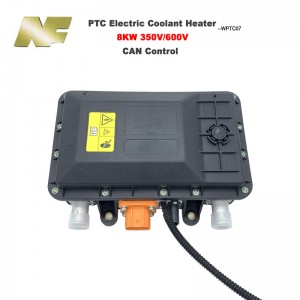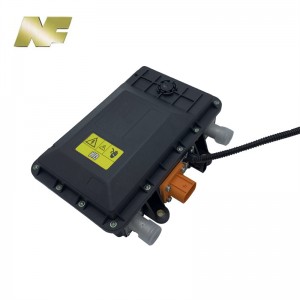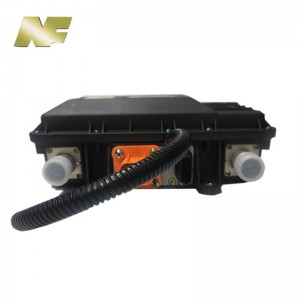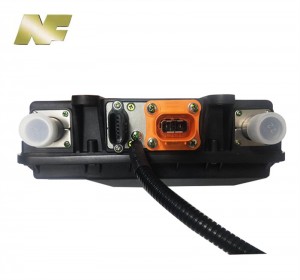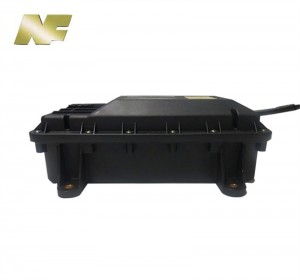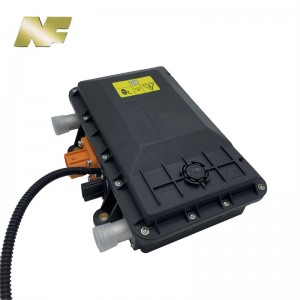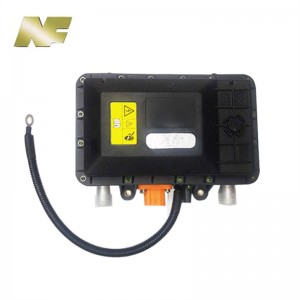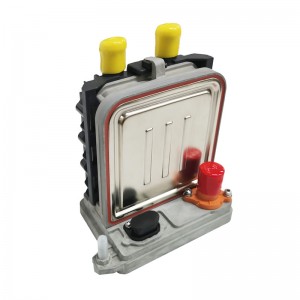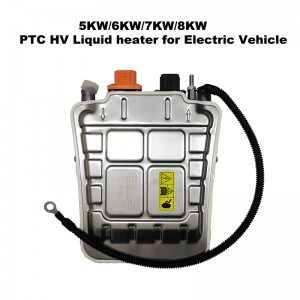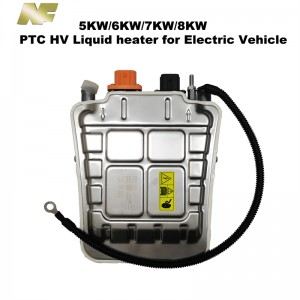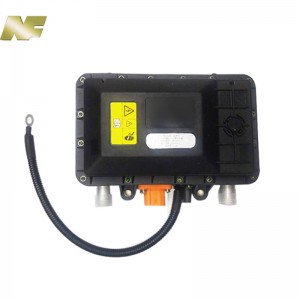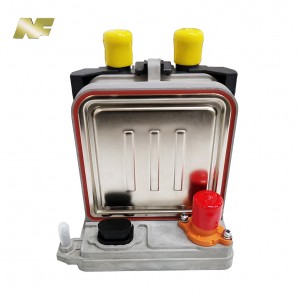NF 8KW High Voltage Coolant Heater 350V/600V HV Coolant Heater DC12V PTC Coolant Heater
Description
Adopting high voltage PTC coolant heaters such as 8KW HV coolant heater and 8KW PTC coolant heater in electric vehicles brings several advantages. From improving heating systems and enhancing thermal management to reducing charging time and extending battery life, these heaters play a vital role in enhancing the performance of electric vehicles. As the electric vehicle industry continues to evolve, these vehicles must be further optimized with advanced technologies to provide an unparalleled driving experience to electric vehicle enthusiasts worldwide.
In recent years, the automotive industry has witnessed a significant shift towards electrification. Automakers have been investing heavily in electric vehicles (EVs) to reduce emissions and reliance on fossil fuels as governments and environmental agencies advocate for clean transportation. However, the transition to EVs comes with its own set of challenges, one of which is maintaining a comfortable cabin temperature in cold weather conditions. This is where the innovation of high voltage battery powered heaters comes into play.
The need for efficient heating in electric vehicles:
Traditional internal combustion engine (ICE) vehicles rely on the excess heat generated by the engine for heating. However, electric vehicles do not have an internal combustion engine to generate heat, and relying solely on electricity for heating will drain the battery and reduce driving range. As a result, engineers and researchers have been working hard to design efficient heating systems that minimize energy consumption while ensuring a comfortable environment for passengers.
The Rise of Battery Electric Heaters:
Battery electric heaters have emerged as one solution to the heating challenges faced by electric vehicles. These heaters are specifically designed to work with the high voltage battery systems used in electric vehicles. By utilizing existing battery packs, they eliminate the need for a separate heating system, reducing overall complexity and weight.
Advantages of high voltage battery powered heaters:
1. Increased efficiency: High-voltage battery-operated heaters efficiently convert electrical energy into heat. They utilize advanced technology such as PTC (Positive Temperature Coefficient) heating elements that heat up quickly and maintain the desired temperature without wasting excess energy.
2. Extended driving range: By utilizing the vehicle's high-voltage battery pack, these heaters eliminate the need for a separate auxiliary battery or fuel-powered heating system. Not only does this approach save space, it also helps preserve the range of electric vehicles.
3. Eco-friendly heating: battery-operated heaters do not emit any greenhouse gases and are very environmentally friendly. Their use is in line with sustainable development goals set by governments and environmental organisations.
4. Rapid heat distribution: The high-pressure heater provides rapid heat distribution, allowing passengers to experience a comfortable temperature within minutes of turning on the system. This feature is especially important in cold climates, where warmth must be maintained quickly.
Future implications and challenges:
Although high-voltage battery-powered heaters have shown promising results, their wider adoption in electric vehicles is still in progress. Challenges such as cost-effectiveness, system integration, and compatibility with different vehicle architectures need to be addressed. Furthermore, optimizing the operation of these heaters under extreme weather conditions is critical to their successful implementation.
in conclusion:
As electric vehicles continue to dominate the automotive industry, improving heating systems is a top priority. The development of a high-voltage battery-operated heater marks an important step towards efficient, environmentally friendly, and energy-saving heating solutions for electric vehicles. By harnessing the power of advanced technology, automakers and researchers are working together to provide passengers with a comfortable and sustainable driving experience, regardless of the outside temperature.
Technical Parameter
| Model | WPTC07-1 | WPTC07-2 |
| Rated power (kw) | 10KW±10%@20L/min,Tin=0℃ | |
| OEM Power(kw) | 6KW/7KW/8KW/9KW/10KW | |
| Rated Voltage(VDC) | 350v | 600v |
| Working Voltage | 250~450v | 450~750v |
| Controller low voltage (V) | 9-16 or 18-32 | |
| Communication protocol | CAN | |
| Power adjust method | Gear Control | |
| Connector IP ratng | IP67 | |
| Medium type | Water: ethylene glycol /50:50 | |
| Overall dimension (L*W*H) | 236*147*83mm | |
| Installation dimension | 154 (104)*165mm | |
| Joint dimension | φ20mm | |
| High voltage connector model | HVC2P28MV102, HVC2P28MV104 (Amphenol) | |
| Low voltage connector model | A02-ECC320Q60A1-LVC-4(A) (Sumitomo adaptive drive module) | |
Packaging & Shipping


Advantage
Warm air and temperature controllable Use PWM to adjust the drive IGBT to adjust the power with short-term heat storage function Whole vehicle cycle, supporting battery thermal management and environmental protection.
Application


FAQ
1. What is a car high voltage heater?
A high-voltage heater in a car is an advanced heating system that uses high-voltage electricity to generate heat. It is commonly used in electric or hybrid vehicles to provide efficient and sustainable heating in cold weather conditions.
2. How does a high voltage heater work?
High voltage heaters work by converting electrical energy into heat through a heating element or heat pump. Electricity is derived from the vehicle's high-voltage battery system, and the heater transfers the generated heat to the interior or specific areas of the vehicle to keep occupants warm and comfortable.
3. Are high voltage heaters more efficient than traditional heating systems?
Yes, high voltage heaters are generally more efficient than traditional heating systems in cars. They use electricity directly and do not rely on fuel combustion, so they are environmentally friendly and energy efficient. In addition, high voltage heaters can be controlled more precisely, improving heating performance and reducing energy consumption.
4. Can a conventional gasoline powered vehicle use a high voltage heater?
High voltage heaters are primarily designed for electric or hybrid vehicles with high voltage battery systems. However, some high pressure heaters can be retrofitted into conventional gasoline powered vehicles. However, modifications can be complex and expensive, and it is advisable to consult a professional automotive technician or manufacturer to see what is possible.
5. Are high voltage heaters safe to use in cars?
High voltage heaters are designed and manufactured to strict safety standards. They undergo rigorous testing to ensure they are safe and reliable for use in motor vehicles. However, as with any high voltage technology, proper installation, maintenance and use are critical to ensuring the safety of the vehicle and its occupants. It is recommended to rely on a certified professional for any repairs or modifications involving the vehicle's high voltage system.

